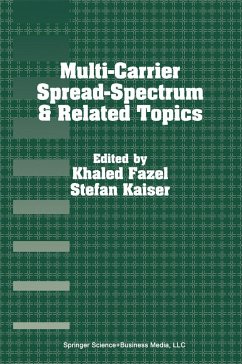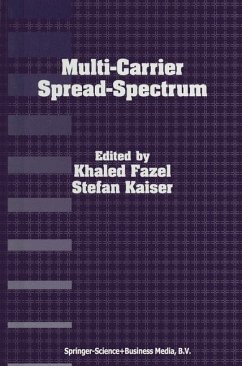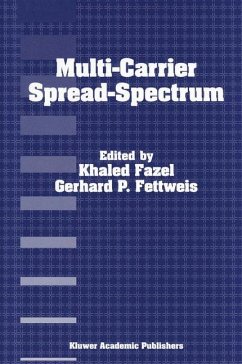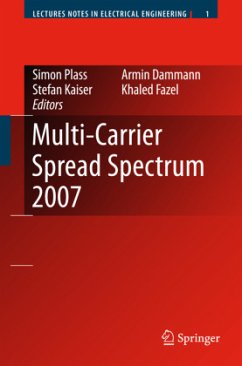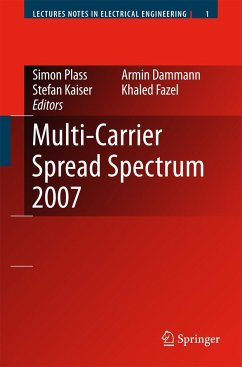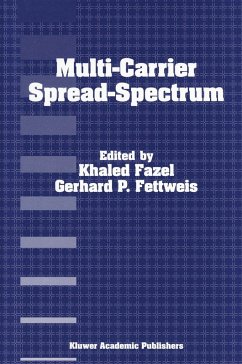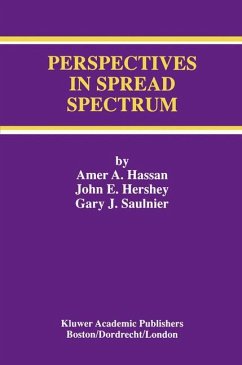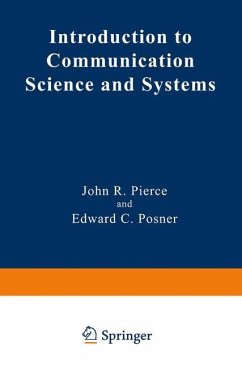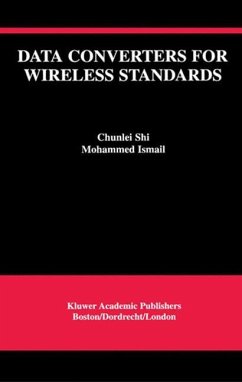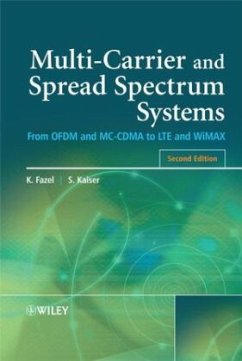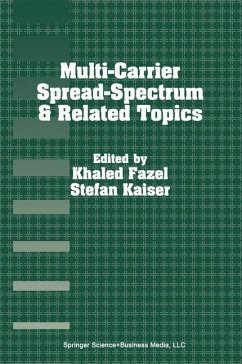
Multi-Carrier Spread-Spectrum & Related Topics
Third International Workshop, September 26-28, 2001, Oberpfafenhofen, Germany
Herausgegeben: Fazel, Khaled; Kaiser, S.
Versandkostenfrei!
Versandfertig in 6-10 Tagen
76,99 €
inkl. MwSt.

PAYBACK Punkte
38 °P sammeln!
Stefan Kaiser Khaled Fazel Radio System Design German Aerospace Center (DLR) Marconi Communications lnstitute of Communications and Navigation D-71522 Backnang, Germany D-82234 Wessling, Germany We are currently observing that frequency spectrum is a limited and valuable resource for wireless mobile communications. A good example can be observed among European network operators for the prices to pay for frequency bands for UMTS/IMT2000. Keeping this in mind, the fIrst goal when designing future wireless communication systems has to be the increase in spectral effIciency by allowing higher flex...
Stefan Kaiser Khaled Fazel Radio System Design German Aerospace Center (DLR) Marconi Communications lnstitute of Communications and Navigation D-71522 Backnang, Germany D-82234 Wessling, Germany We are currently observing that frequency spectrum is a limited and valuable resource for wireless mobile communications. A good example can be observed among European network operators for the prices to pay for frequency bands for UMTS/IMT2000. Keeping this in mind, the fIrst goal when designing future wireless communication systems has to be the increase in spectral effIciency by allowing higher flexibility for the system design and deployment. The development in digital communications in the past years has enabled effIcient modulation and coding techniques for robust and spectral effIcient data, speech, audio and video transmission. Here, we should mention two interesting and successful techniques. These are the multi-carrier modulation (e. g. OFDM) and the spread spectrum technique (e. g. DS-CDMA). During the last decade of this millennium the technique of multi-carrier transmission for wireless broadband multimedia applications has received wide interest. Its fIrst great success was in 1990 as it was selected for the European Digital Audio Broadcasting (DAB) standard. Its further prominent success was in 1995 and 1998 as it was selected as modulation scheme for the European Digital Video Broadcasting (DVB-T) standard and in three broadband wireless indoor standards, namely European ETSI-HIPERLAN/2, American IEEE-802. 11a and Japanese MMAC, respectively.





